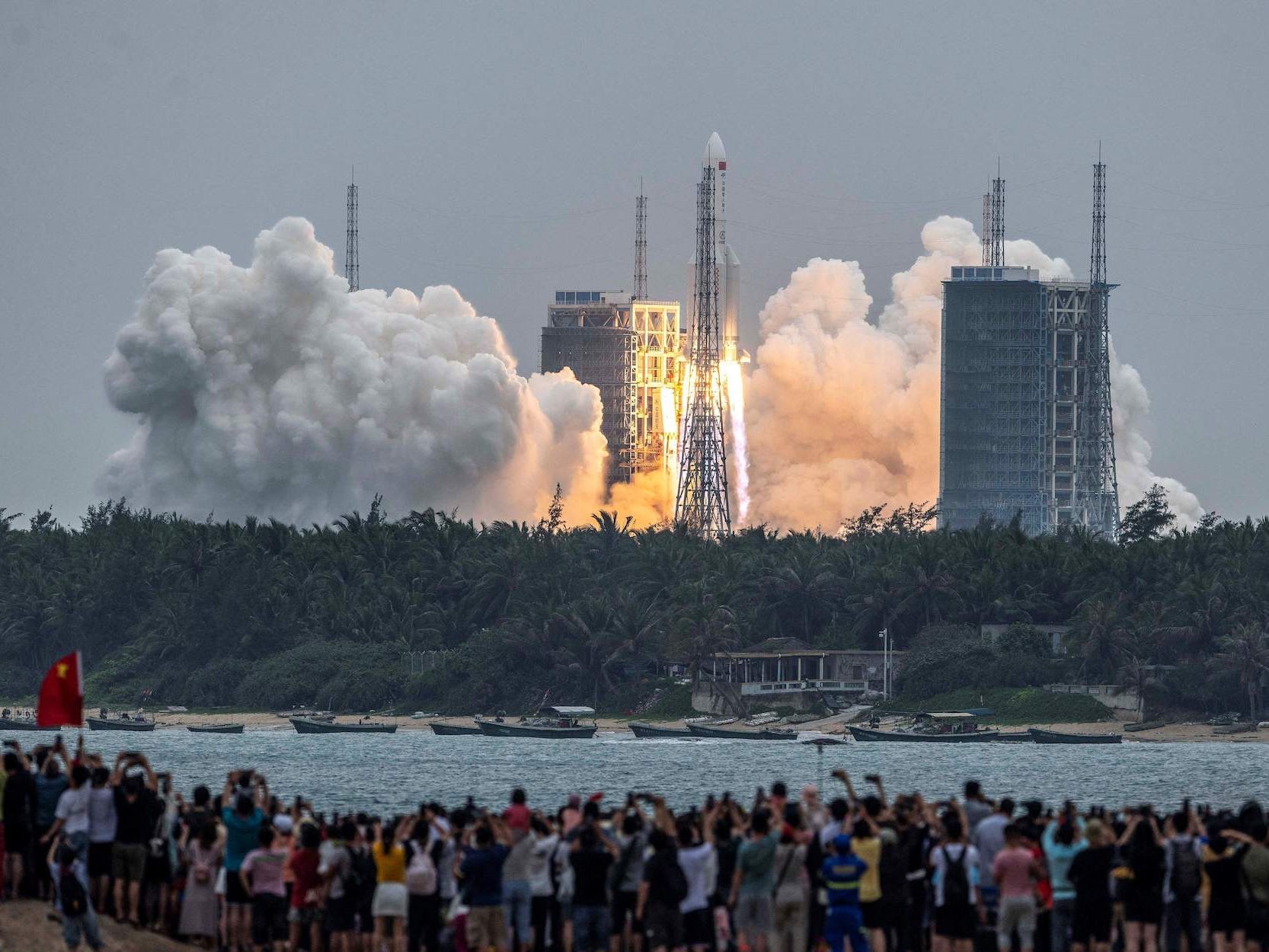
STR/AFP via Getty Images
- An uncontrolled Chinese rocket is heading toward Earth, and nobody knows where the debris could land.
- A European astronaut told Insider it is unlikely they will fall on inhabited areas.
- But if they did, authorities would only have "very few hours" to warn people, he said.
- See more stories on Insider's business page.
It is highly unlikely that debris from the uncontrolled Chinese rocket that's falling back to Earth will hit inhabited areas, an official from the European Space Agency told Insider on Friday.
But if the rocket were to fall near an inhabited area, authorities would have only "very few hours" to give people warning, Thomas Reiter, an astronaut and the interagency coordinator for the ESA told Insider on Friday.
A large section of a rocket launched by China on April 29 is currently orbiting the Earth and falling toward the atmosphere. But because the rocket is not controlled, it is not clear where or when it will reenter the atmosphere.
Experts currently believe the rocket could land anywhere within 40 degrees of latitude north of south of the Equator.
"A large part is covered by oceans. Another large part is covered by desert," Reiter said.
He said that for this reason, "we can say that the risk that something hits inhabited area is comparable to a person getting hit by a lightning."
However, he said, because it won't be clear where the rocket will land until the last moment, "unfortunately it's very difficult to give warning to those areas, if it would, for example, fall down inhabited areas."
"The pre-warning would be within very few hours, probably even less," Reiter said.
Reiter said most of the rocket is likely to burn up in the atmosphere, where the temperatures upon reentry are more than 3,600 degrees Fahrenheit, Reiter told Insider.
But he said it is likely that some parts of the rocket are built with materials that can sustain these high temperatures, the likelihood that those parts of the rocket could hit Earth is "very high," Reiter said.
China's foreign ministry said on Friday the majority of the rocket was likely to burn up upon reentry into the atmosphere, and that there was a "very low probability of causing harm to aviation activities and the ground."
Reiter said: "The risk to hit any inhabited areas should be kept as close to zero as possible."